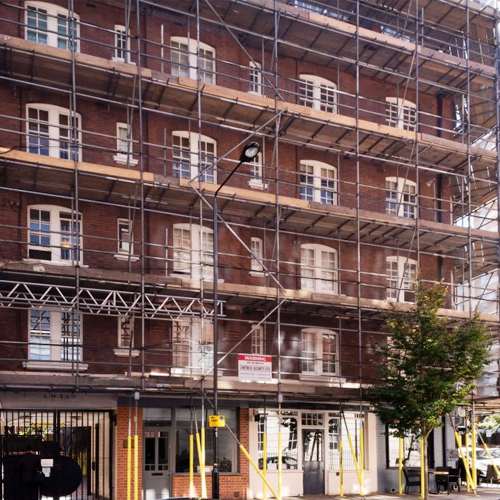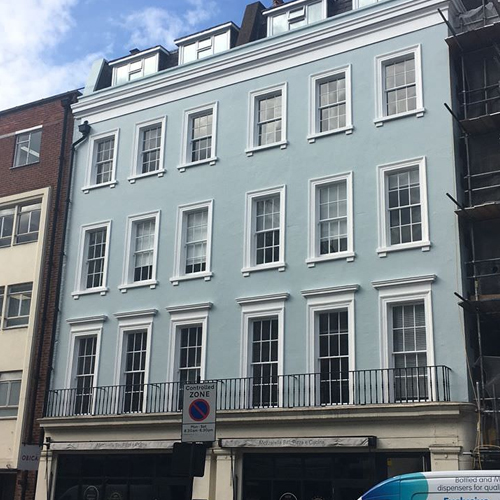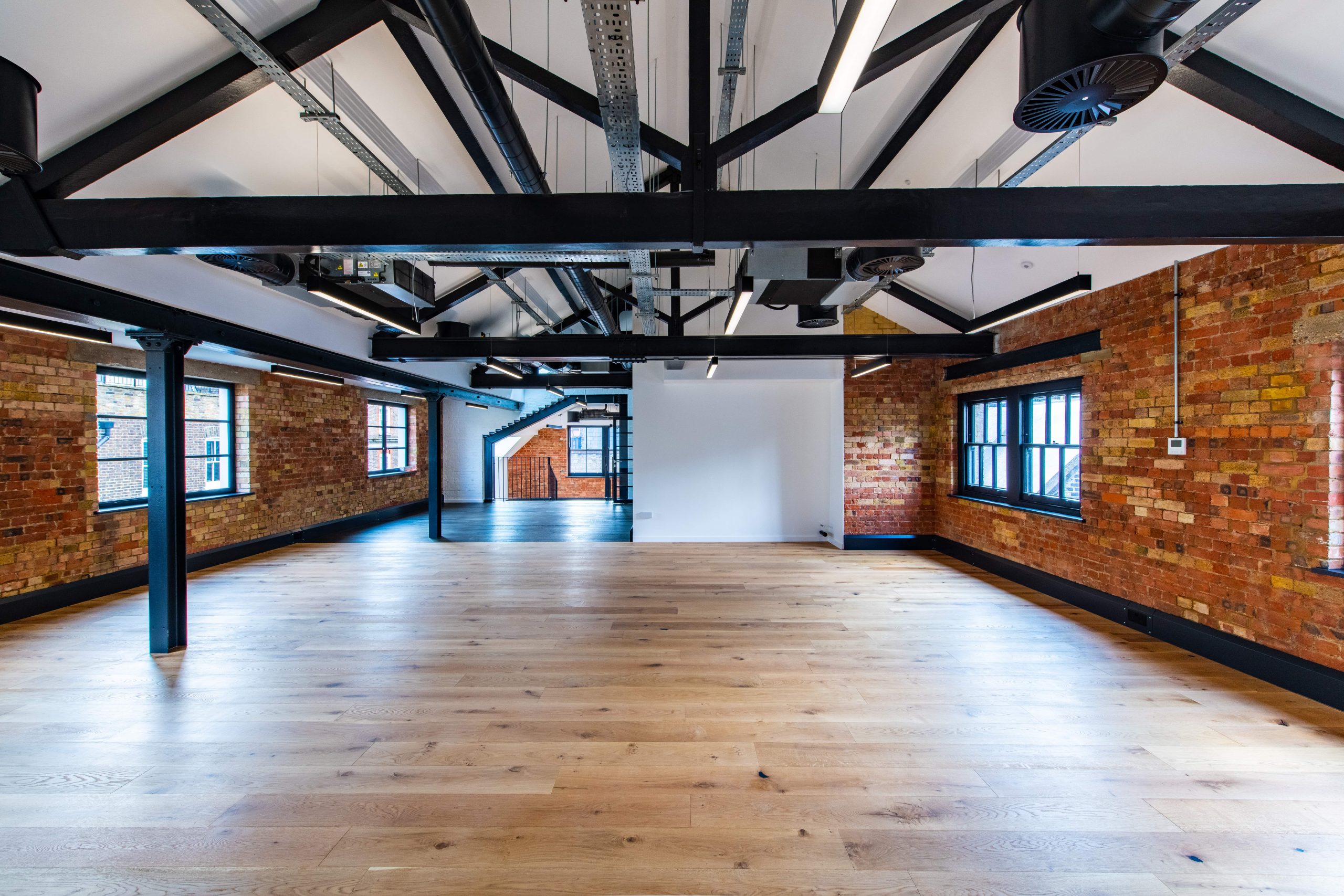Everything You Need To Know About You and Your Neighbour During Boundary Works
What Is The Party Wall Act And What Does a Party Wall Surveyor Do?
Who Is Responsible For Complying With The Party Wall Act?
How Do You Go About Notifying Your Neighbours Of Planned Work That Will Affect Them Under The Party Wall Act?
What Are The Consequences Of Not Complying With The Party Wall Act?
How Can Owners Resolve Disputes Arising From Party Wall Works Carried Out Under The Act?
5 Tips For Minimising Disruption When Carrying Out Works Affecting A Party Wall?

Everything You Need To Know About You and Your Neighbour During Boundary Works
The Party Wall Act (1996) is legislation designed to protect the interests of neighbours during building work affecting boundaries between the two properties.

The first thing to note is DIY, minor repairs, decorating, plastering, fixing of ordinary shelves, everyday drilling and small-scale plumbing and electrical work are considered too small to warrant legal protection.
The Party Wall Act is aimed at major works such as structural repairs, extensions, damp proofing, demolition, excavations and new building.
These activities have a major impact on both sides of any boundary and should things go wrong, disruption and costs may be incurred by both parties.
What is a Party Wall Notice?
For works to be deemed acceptable under the terms of the Act the party proposing the work needs to demonstrate they have an agreement by their neighbour and that the neighbours’ rights have been considered. This means, before you start major works involving any kind of boundary, you need to let your neighbour know in writing with a document known as ‘party wall notice’. If your neighbour agrees, the two of you enter into a ‘party wall agreement’. If your neighbour does not wish you to proceed, the Act provides a dispute resolution procedure.
What Is The Party Wall Act And What Does a Party Wall Surveyor Do?
The Party Wall Act (1996) aims to prevent or resolve any conflicts around major construction works between property owners who share boundary walls and structures. Used correctly, it protects everyone and keeps relationships positive and amenable. Not complying risks expensive legal disputes.
The Act covers three main categories of work:
Direct work to any existing party wall or shared structure
Any new building next to or astride the boundary line between properties
Excavation close to neighbouring buildings or structures
In the case of excavation, the required distance from any boundary will depend on the depth and nature of any hole.
A Party Wall Surveyor has a specialist role in avoiding and resolving disputes between neighbours under the Act. They have a duty under the Act to provide fair, practical and transparent reports on a building’s condition during any work.
Who Is Responsible For Complying With The Party Wall Act?
It is the owner with the intention to carry out any building works that is responsible for instigating the process of serving Party Wall notices. The act refers specifically to responsibility lying with a Building Owner who is ‘desirous of exercising their rights’ under it. In practice, this means if the works are your idea and you own the property, compliance is your responsibility.

The other responding parties to any Party Wall actions are often referred to as ‘Adjoining Owners’ and, as you might expect, they are typically neighbours of the Building Owner.
It falls on the Building Owner to provide the Adjoining Owner (or Owners) with a written Party Wall Notice before commencing any major works that impact on a boundary or boundaries between properties.
How Do You Go About Notifying Your Neighbours Of Planned Work That Will Affect Them Under The Party Wall Act?
It is advisable to first discuss any planned work informally with the owners of any properties affected. It is always best to set the scene for a party wall agreement by being friendly, open and informative. People understand that buildings need maintenance and might well be supportive of any improvements.

The building owner should then arrange to provide a written Party Wall Notice. A letter is sufficient that identifies the properties in question, describes the proposed works and shares the proposed start and finish dates. It is also useful to share provisions that will be made to protect the adjacent property and make good on any required repairs.
For work on existing party walls, the notice must be sent two months before the planned start date of the work. New walls or excavations near the boundary line need to be sent at least one month in advance. It’s worth noting that Party Wall notices last for 12 months, so if the project is delayed there is not necessarily a requirement for a new one.
Can Neighbours Refuse A Party Wall Agreement?
In a word, yes. There is no obligation to provide consent at all. Adjoining Owners can say no. Rather than a flat refusal, The Party Wall act allows Adjoining Owners to write back with a counter-notice suggesting alternative or additional works. No response at all is considered a refusal after 14 days, which also starts the dispute procedure.
Dispute procedure describes the act of appointing a specialist Party Wall Surveyor. Expert and independent, they will act as a professional mediator by producing a Party Wall Award report that, according to the act, either allows the work to go ahead, backing the Building Owner, or prevents it from going ahead protecting the Adjacent Owner. Rather than have the Building Owner lose out, The Party Wall Surveyor is likely to recommend an alternative approach acceptable to both parties.
Appointing the Party Wall surveyor is the responsibility of the Building Owner. The building owner is also liable for the cost of a second surveyor should the Adjoining Owner prefer to use their own.
A third surveyor may be required to adjudicate, should the previous two reports contradict one another.

What Are The Consequences Of Not Complying With The Party Wall Act?
Failure to comply with the Party Wall Act leaves you open to legal action and injunctions from your neighbours. At the very least this could cause delays to your building work while matters are resolved. At the worst, the dispute could end up in court with all the associated high costs you might expect. If you haven’t followed proper procedure, it would be difficult to see the result of a court case going your way.
Even if disputes don’t reach that level, the lack of a written Party Wall Agreement can unnecessarily sour relationships with neighbours. Engaging with the Party Wall process is the best way to demonstrate you will consider their views during any work. Ignoring this important step at the outset of any project is likely to make discussions more difficult further down the line.
How Can Owners Resolve Disputes Arising From Party Wall Works Carried Out Under The Act?

The hiring of independent Party Wall Surveyors is specified in the Party Wall Act as the preferred method of dispute resolution. Party Wall Surveyors can assess and report on the proposed works and their impact and make recommendations to keep both sides of a dispute satisfied.
One Party Wall Surveyor is generally seen as sufficient to work for both parties, however as discussed, Adjoining Owners may wish to source a separate surveyor to protect their interests.
Party Wall Surveyors will typically review existing and proposed architectural drawings, proposed structural drawings, calculations and construction method statements. They will also refer to Land Registry Title Deeds and Plans and other information pertinent to the construction works under dispute to reach a finding.
They will then make a Party Wall Award to one of the disputed parties. A Party Wall Award summarises the dispute and provides a final document that provides adequate legal protection to Adjoining Owners to allay their concerns. The Award is commonly known as a Party Wall Agreement. Once signed, a Party Wall Agreement means works can begin with any dispute resolved.
5 Tips For Minimising Disruption When Carrying Out Works Affecting A Party Wall?
We have broken the process of gaining a Party Wall Agreement into five steps which we trust you’ll find useful.
1. Remember the Party Wall Act refers to major works and excavations. Check it applies to your plans.
2. If you are the Building Owner planning any work, you are responsible for sending a Party Wall Notice to Adjoining Owners. Notices should describe the planned works and schedule in writing.


3. Adjoining Owners have 14 days to respond. No response is considered a refusal and starts the dispute process.
4. Once a dispute starts, the Building Owner should respond by appointing a Party Wall Surveyor. Adjoining Owners can also appoint their own Surveyor at the Building Owner’s cost.
5. Your chosen Party Wall Surveyor(s) will make an Award to either party that should form a Party Wall Agreement the Building Owner and Adjoining Owners can sign to bring the dispute to an end.
There is plenty of professional advice available for anyone who feels they are heading towards a Party Wall dispute. The Royal Institution of Chartered Surveyors (RICS), for example, offers Party Wall advice through a dedicated working group.
As fully Chartered Surveyors, Fresson and Tee are ideally placed to help navigate lease liabilities and support speedy Party Wall dispute resolution for either party. There’s no need to face the issue without the right professional support.
If you would like to discuss your dilapidation requirements further, please call our office on 020 7391 7100 or email us at surveyor@fandt.com.